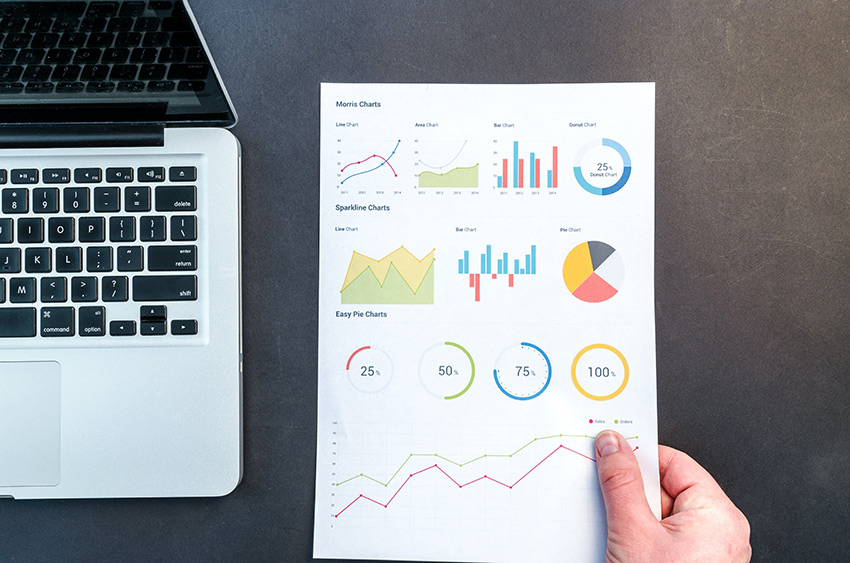Data and analytics are increasingly becoming fundamental tools for B2B marketers to understand their target market, develop effective marketing strategies, and measure the success of their campaigns.
With access to vast amounts of data, marketers can now gain real-time insights into customer behavior and preferences, allowing them to tailor their content and communication to meet their audience’s needs.
Analytics also enables marketers to track changes in customer behavior and adjust their strategies accordingly. By leveraging data and analytics, they can create targeted and personalized campaigns that maximize ROI and increase brand loyalty.
This article will explore the different ways B2B marketers can use data and analytics to improve their marketing efforts and why it’s crucial to do so.
Optimizing the Customer’s Journey
Marketers can use data and analytics to optimize their customers’ journey. By tracking their touchpoints, they can identify opportunities for improvement and make changes accordingly.
With data analysis, it’s possible to measure the effectiveness of different stages of the customer journey and determine where you need to focus your efforts. For example, marketers can track the customer’s journey from awareness to purchase and analyze key metrics, such as conversion rates, engagement, and retention. This helps to identify any issues or areas of improvement quickly and efficiently.
For example, if a marketer notices customers dropping off at the checkout page, they can analyze the page to identify any potential problems. They can then use this information to adjust the page design or content to increase conversions or decide to hire a remarketing & retargeting ad service to address targeting issues.
Understanding Your Target Market
Data and analytics are essential for B2B marketers to understand their target market. Relevant information provides insights into customer demographics, interests, preferences, and behaviors. This helps to identify the most suitable and effective marketing techniques for a specific target audience.
Data also allows for segmenting customers based on their behavior and creating tailored campaigns for each segment. For example, marketers can use it to determine the most common channels and content formats chosen by their target market, as well as the most suitable timing for their outreach.
What’s more, data analysis can be used to compare customer segments and identify the most valuable ones, allowing marketers to prioritize their efforts and focus their resources on the ones that will yield the highest returns.
Measuring Performance
Data and analytics are also invaluable for measuring the performance of B2B marketing campaigns. Marketers can use them to track key metrics such as conversion rates, engagement, and customer lifetime value. This enables them to identify which channels and tactics are working best and where further optimization is needed.
Marketers can also use data to analyze the performance of specific campaigns. By tracking clicks, views, and conversions, they can monitor how their campaigns are performing and adjust their strategies accordingly.
Additionally, analytics can also verify the success of content marketing efforts. For example, marketers can track the leads generated from blog posts or social media posts and adjust their strategy accordingly.
Personalizing Content and Communication
Creating personalized content and communication is key to successful B2B marketing. Data and analytics can create campaigns that resonate with different segments.
Marketers can use data to determine the topics, channels, and formats that will be most effective for each customer segment. Relevant information will then help personalize the content to fit each segment’s needs and preferences. This can include using customer data to develop email campaigns, create hyper-targeted ads, and optimize website content.
For example, find that your target audience is more likely to engage with video content. You can create engaging videos instead of investing time and effort in written content.
Aligning Marketing and Sales
Data and analytics can also be helpful in aligning marketing and sales efforts to ensure campaigns are focused on the right objectives. It enables marketers to track sales activities and use this information to make adjustments to their strategies.
With the right data, marketers can identify where leads are coming from and determine which channels are the most effective. This information can be used to adjust campaigns accordingly, i.e., focusing more on those that have higher conversion rates or investing more in content marketing if it’s yielding the best results.
Furthermore, data and analytics can help marketers understand how their campaigns impact sales and revenue. With this information, they can make decisions about which strategies to prioritize in order to maximize ROI.
Optimizing Online Visibility for Search Engines
SEO is an integral part of any modern marketing strategy, and data and analytics are essential for optimizing online visibility. By analyzing search engine data, marketers can identify which keywords they should be targeting, where they need to focus their efforts, and how to optimize their content for organic search.
They can also use analytics to track the performance of their SEO efforts and make adjustments as needed. This can include assessing the effectiveness of different keywords, testing page titles and meta descriptions, and using A/B testing to find the best content for maximum visibility.
Conclusion
Data and analytics are essential for B2B marketers to understand their target market, optimize their customer’s journey, measure performance, and personalize content and communication. By leveraging data and analytics, marketers can create tailored campaigns that maximize ROI and increase brand loyalty.
Data helps to identify the most valuable customer segments and determine which channels, topics, and formats will be most effective for each segment. Additionally, analytics enables marketers to track the performance of their campaigns, identify areas of improvement, and adjust their strategies accordingly.
Ultimately, data and analytics are essential tools for B2B marketers to succeed in today’s competitive landscape. By leveraging their power and insights, marketers can create targeted campaigns that drive conversions and generate long-term growth.








